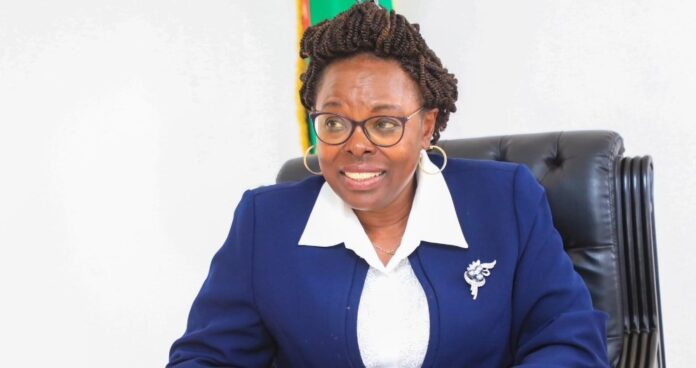The Controller of Budget (CoB) has raised alarm over thousands of unauthorised bank accounts operated by county governments, warning that the practice exposes public funds to theft and mismanagement.
In her full-year report for the 2024/2025 financial year, Controller of Budget Margaret Nyakango revealed that as of June 30, counties were running 5,476 accounts in commercial banks, many of which had not been authorised by her office as required by law.
“County treasuries have failed to submit authorisation letters for these accounts to my office, contrary to the Public Finance Management Act,” Nyakango said, cautioning that the proliferation of such accounts poses “serious risks of financial impropriety.”
The report highlights stark disparities across counties. Homa Bay tops the list with 558 bank accounts, followed by Kitui with 350, while Bungoma and Nakuru each run more than 300 accounts.
Baringo, Kwale, Machakos, and Embu counties also operate more than 200 accounts apiece.
By contrast, Nandi leads on the lower end with just 10 accounts, followed by Kisii (14), Siaya (15), Tharaka Nithi (16), and Murang’a (20).
The CoB report also assessed counties’ performance in absorbing development funds and collecting their own revenues.
Governors Stephen Sang (Nandi), George Natembeya (Trans Nzoia), Patrick ole Ntutu (Narok), and Isaac Mutuma (Meru) were ranked among the best in development funds absorption.
In own-source revenue, Kisii Governor Simba Arati led the way alongside Tana River, Wajir, and Kirinyaga.
Nairobi recorded the highest collection at Sh3.1 billion — representing 66% of its target — followed by Narok at Sh5.7 billion. Mombasa and Kiambu rounded out the top four.
However, Kajiado, Machakos, Isiolo, and Taita Taveta counties were flagged for underperformance in revenue collection.
Nyakango underscored that while counties are mandated to operate bank accounts for service delivery, failure to seek approval and register them undermines transparency and accountability in public finance.
Her warning adds to growing concerns about fiscal discipline at the devolved level, with calls mounting for stricter oversight to safeguard taxpayer funds.



















